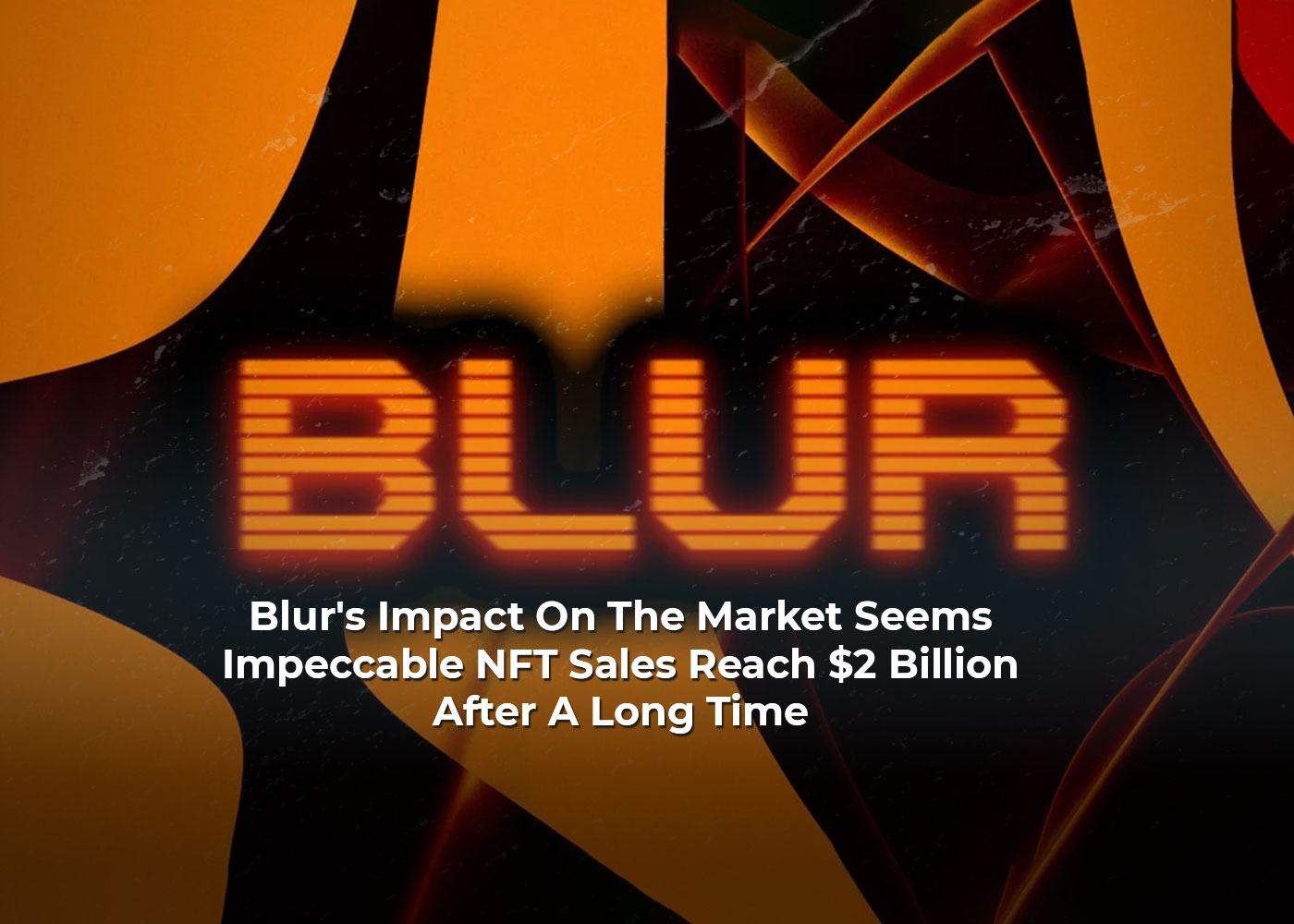Blur’s Impact On The Market Seems Impeccable: NFT Sales Reach $2 Billion After A Long Time

Statistics from DappRadar state that NFT sales escalated in February to levels not seen since the previous spring’s crypto winter.
Trade exceeded a staggering $2.04 billion in January, a rise of 117% on $941 million in January. With those numbers, February was the NFT market’s greatest month since last May, when Terra’s implosion destroyed the cryptocurrency industry and covered the once-hot NFT market in snow.
Yet, the spike seems to be mostly attributable to one contentious source: Blur. Incentives that financially reward devoted users for forgoing trading on any other platform and—more importantly—for trading as many high-value NFTs as possible have driven the emerging NFT market’s quick march to supremacy, which just this month overtook OpenSea in trading volume.
Blur’s Trading Volume has Increased
Remarkably, compared to January, Blur’s trading volume rose by about $1.13 billion in February, accounting for nearly all of the month-over-month growth for the entire NFT market. Nevertheless, the majority of that volume was produced by a tiny group of whales flipping NFTs repeatedly in order to earn BLUR tokens under the company’s incentive program.
The NFT ecosystem is currently dominated by the contentious issue of whether or not to count that trading as genuine volume. Due to “market manipulation,” Cryptoslam, a top site for tracking NFT sales, said this week that it would delete $577 million worth of Blur trades from its database.

Is it Wash Trading?
Often, wash trading is described as the practice of traders moving NFTs back and forth among their own wallets, frequently at exorbitant rates, to fudge the reputation or market worth of such assets. Earlier attempts to emulate gaming incentives schemes provided by NFT platforms, such as LooksRare, were also referred to as wash trading.
The apparently trivial argument over whether Blur’s current activity rise is legal or illegal has significant ramifications for the NFT industry. The market-wide data for February would resemble those of January more closely if the action in question on Blur was, in fact, classified as wash trading. The fact that February’s overall number of NFT sales remained basically unchanged from January supports that interpretation.
You might check:
- Hong Kong Allocates $50 Million For Web3 Development In 2023
- Introduction to Arcadeum Token: What Is It and How Does It Work?
- EA’s Grand Name Trip Hawkins Is Now On The NFT Field




